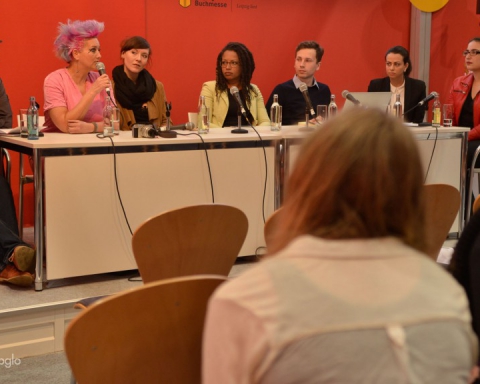– A desk is a dangerous place to view the world.
John le Carré
For me, there is something pressing and ominous about a book I cannot finish.
I see (stare at) my orange bound copy of Lorrie Moore’s Collected Stories on my night table. It is the Faber and Faber edition. I ordered and received the book with some enthusiastic relish four weeks ago and some previous and woeful weekend, hazarded my way in – two hundred and twenty-one pages. No further progress as I became bogged down, ultimately feeling sullen realizing how jaded and melancholic I was under the sway of the author’s stories.
I’m an ‘impressive reader’, a book looms over me, I take it in and I don’t know if others are the same. It is like a direct drug, a quick needle of words with their impressions and the result is either a stimulant or a depressant. Moore’s book belongs in the latter category as her characters are loners and lost cynics, divorcees (many of them) and solemn dreamers. The majority of these people she writes about work in some academic field whether teaching dance or working in a library. And of course, one cannot forget the many, many professors as characters.
Write what you know (or don’t?): Moore is a professor of literature at the Vanderbilt University and I wonder if all her colleagues have such gallows humor. Wry and forced, her stories are sprinkled with cynical and self-appraising jokes and witticisms. For instance, in a story called ‘Real Estate’ a woman discovers her husband is cheating on her (many, many of these stories deal with infidelity – which can be exhausting and repetitive in and of itself). But in this instance, it is not just one affair but ‘a parade of flings’ that makes Ruth, the main character laugh. And to emulate the sad and desperate laughter, Moore showers two pages of her tale with a berating series of (or ‘parade of’) ‘Ha!’s’ before continuing.
I am still rolling my eyes.
In another story, a group of academics get together for a dinner. Witty comments are made, as much as Milosevic and the Chinese New Year are discussed. Chewing gum at one point is compared to a ‘rat’s brain’. Then, when one character talks about being unable to salvage a car headlight after an accident someone suggests ‘they should have put it on ice’ as if it was bruised limb or an organ on the way to being transplanted. And said… yes, so smug and self-congratulatory.
Another groaner refers to a possible aneurism: a character, reflecting on her friend’s headaches says “render unto seizure what is seizure’s…”, a play on the famous line from the synoptic Gospel, Matthew (22:21).
I am still shaking my head.
So yes, I’m at a standstill, and it’s not the humor, just this overall unsatisfying collage of people best left under rocks like salamanders. Nothing changes, nothing happens and yes, one might argue that’s life but writing about it in such a manner doesn’t make it bearable nor does it encourage me to continue beyond page two-hundred twenty-one. This world of hers is so cold, so pathetic.
But it’s not the world, not really, just an academic writer’s perspective on it.
And a perspective marred by spending too much time in an Ivory Tower.
While living in Victoria, British Columbia in Canada, I met at two different times, two MFA students. I encountered the first in a bookstore, my then temporary place of occupation (I was fired a week later… another story). She wanted to order an academic book and hoped it was cheaper than going through the university bookstore. The book was perhaps ten dollars cheaper but it was good enough for her and so she pulled out her wallet. While putting her credit card number in the computer I enquired about the tome; she informed me it was for her creative writing class.
When I mentioned I had applied to the program at UVIC she started to shake her head.
“Run away,” she murmured, her green eyes suddenly so sad and small. “Run away. If you love writing and love being creative, run away. They will kill your passion and love. That’s what they do. Run away. Run.”
It was like encountering that prophetic figure in a slasher film (‘don’t go to that dark cabin in the woods and have sex…’). One always has such soothsaying characters in order to warn the hero of impending doom; but unlike the hero who ignores the wisdom and stubbornly keeps on going, I readily took the advice. The lost look in the girl’s eyes was enough for me.
And I don’t regret my path. A year later, on the bus back from the university, I met another student, a fellow writer. When I asked about his experience with the UVIC writing program he said he hated it. “Honestly, the professors, the students, they are all the worst people in the world. A waste of money. How can teenagers become writers? How can anyone write in such an environment?”
I nodded, I agreed with him. “But why continue? I mean, why not switch majors if you despise it so much?”
“I’m almost done. Get my degree, get out. That’s it. After school, I’ll continue doing what I’m doing: working with my father refurbishing houses. I’ll write when I can and fuck these people. They’ll never learn to live.” He then asked me if I knew the Philip Larkin poem, ‘This be the verse’. I didn’t and he recited it whole to me.
“But instead of your parents fucking you up, it’s these professors. They are social morons half the time.”
Again, I didn’t regret not applying to the program. I had two strong testaments.
Still, beyond my personal feeling (and those of the two I met), we should look at a 2015 article by the New York Times, describing the increase of creative writing programs in universities throughout the United States. In 1994, there were 64 such programs; today, it is 229. The article suggests with the popularity of such shows as Girls and the stabilizing of the American economy, the reason some three to four thousand students graduate each year with such a degree will only lead to other institutions following suit (the trend is spreading to Germany and Europe as well…).
I regard it as a plague. Certainly, I have my reasons, what I call my own personal proof (Moore’s stories) and the two students, but in my corner, I am backed by Horace Engdahl, a man responsible for selecting the Nobel Prize in Literature every year. Last October, in a Guardian article, he bemoaned the state of Western Literature and the ‘professionalisation’ of the writer via grants and academic financial support. “Even though I understand the temptation,” he first told the French newspaper, La Croix. “I think it cuts writers off from society, and creates an unhealthy link with institutions.”
Then there is Ian McEwan and his advice to aspiring writers. In a YouTube interview series via the Knopfdoubleday channel, he says setting time aside is important and if it means taking a creating writing program, that is just as ‘useful’. “That said,” he goes on, albeit cautiously, “I think we can suffer a bit from too many writing programs. And I’ve often thought…one of the aspects that alarms me is undergraduate writing programs. Seems too soon for me. Seems like a vehicle for mass ignorance.” Writers need to read and to live in the world and entering such programs far too young ineluctably cuts them off from the treasure chest of real world experience. McEwan wonders about the lost engagement with the world, a world where too many writers are – unsurprisingly – English and writing professors.
There are numerous others, I should say, in my anti-MFA camp while some are merely and politically in-between, questioning the value of the MFA programs. Overall, I compare and contrast the entire pro-and-anti MFA to the dichotomy between the academic painters of the Paris Salon and the Realist-and-Impressionists of the 19th century. There were those artists in the 1800s who studied at the academy and became professors while the truly talented abandoned the Ivory Tower and became ‘truer’ artists. The academics favoured safer scenes from mythology and stories from the Biblical canon, while those who embarked on their own paths painted the gritty and uncomfortable ‘human’ scenes of daily life. Gustave Courbet remarked once: “Show me an angel and I’ll paint it.”

And when you view the paintings today, you can ‘feel’ (absolutely) the difference. Take Alexandre Cabanel’s The Birth of Venus of 1863. The nude woman depicted is less flesh and blood, less someone you might meet in the market place and more figurative stone. She appears to lie on a bed of perfectly rendered waves, those carved as opposed to flowing. Despite the romantic arm draped over her forehead it comes off as rigidly constructed and posed – add to this the chirping assembly of cherubs in the sky. It is well-executed but compare it to Edouard Manet’s Olympia of the same year. Another nude but I would say the figure is more ‘naked’. She isn’t academically contorted – no cherubs, no grace, no arm draped languidly. No, Olympia is bare, far from modest. She is a human being and despite the depth in her darkened and defiant eyes, there, in the midst of the painting, her stark white hand is clamped down over her privates. The hand is a kind of anchor and we, as much as her, are briefly unaware of the African maid in her presence and the black cat at the end of bed. This is a woman proverbially hardened by her profession, never a goddess, always a kind of mistress. She is flesh and bone, comparable to the literary equivalent in the naturalist novelist Emile Zola’s Nana; we feel compassion for her, for the nights and men she has seen.
For me, I wonder about tomorrow’s glance back to this time, whether what I am highlighting will be further explored. Will we have the authors who went against the MFAs and those who went along? Who will be appreciated and remembered? In today’s academic writing, we have these professors, those willingly sequestered to campuses and their distant towers telling us about life (there is irony here, isn’t there?). They report on a life few of us live. Reading Lorrie Moore, I feel like I am in the company of Canabel’s Venus. I know her stories are well-written just as Canabel’s goddess is beautifully rendered. But it is a rendering I cannot relate too as the characters are removed from everyday life and one gets the impression of a sur-reality.
No, I cannot shake the feeling of the lifeless, the sterile in her stories and in the painting. While Canabel has positioned his Venus in a world entirely fabricated, based on the Neoclassical traditions of his time, Moore has put her characters into environments and circumstances that border on the punitive and the forced. Moreover, her eye is jaundiced and cruel and yes, so sardonic while reading I wanted to rescue her characters and give them real lives, lives that are probably a bit more balanced or ‘true’. Moore, I would argue, is trying to be transgressive. She has one story wherein a man falls in love with a woman who has a relationship bordering on incest with her son and another featuring two heterosexual men embarking on a love affair. The stories don’t feel quite plausible but come off as experiments in real life, less like true events, more like concoctions. This is not observation but a spell of mischief.
“One senses that the transgression is fake, strategic,” to return to the solemn Swede, Engdahl. “These novelists, who are often educated in European or American universities, don’t transgress anything because the limits which they have determined as being necessary to cross don’t exist.”
Literature, art, music, photograph, painting, sculpture are best when based in the real and human. Even the supernatural and the other worldly can be real so long as human beings fill up the story or the depiction. We are drawn to each other to learn and love and care for the greater mass. Those who dwell furthest from us, again, in the Ivory Tower, in the unreal, truly have no right to tell our stories. If they were famous amongst themselves and themselves only, I wouldn’t worry, but Moore is considered one of the greatest short story writers of her generation.
And I’ll admit, this frightens me. It scares me so much it makes me want to travel to Stockholm and give Engdahl a hug. A hug for both of us seeing how this trend of MFA programs is not going to end.
“Run…” I can still hear that MFA-battered student in Victoria saying to me.
If only we could.










